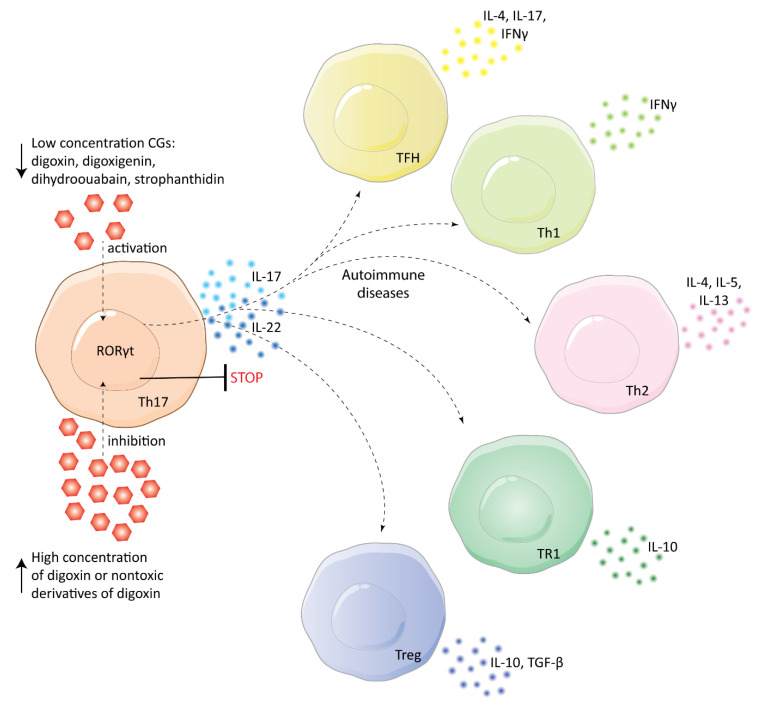Figure 4.
Cardiac glycosides at low nanomolar concentrations activate RORγt, whereas at high concentrations they cause RORγt transcriptional inhibition. This influences the production of interleukins (IL) 17 and 22 in T-helper cells expressing IL-17 (Th17). The interleukins promote autoimmune diseases by activating immune cells, such as follicular B-helper T cells (TFH), type 1 and type 2 T-helper cells (Th1, Th2), type 1 regulatory T cells (TR1), and regulatory T cells (Treg). These cells produce IL, interferon γ (IFNγ), or transforming growth factor-beta (TGF-β).

